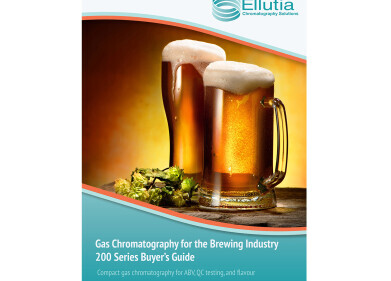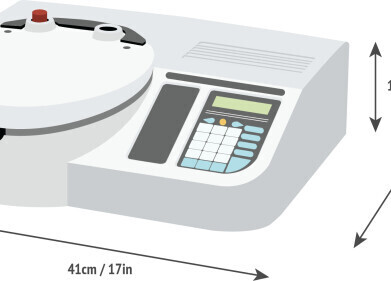Chromatography
Bioprocessing vs Biotechnology - What's the Difference?
Dec 21 2022
From flowers and plants to moulds and microorganisms, the natural world is abundant in useful properties. Over the centuries, humans have developed ways to harness natural properties from living sources and transform them into useful products. Bioprocessing and biotechnology are two terms that come up a lot. While they sound similar, there are some key differences between the two. Read on to find out more about bioprocessing vs biotechnology.
Bioprocessing
Bioprocessing describes the process of utilising the properties of living things such as organisms, cells and individual components to create useful products. The term is broad and used across a wide range of sectors, from pharmaceuticals to biofuels. Bioprocessing describes the entire process, from start to finish. This includes initial upstream steps like identifying components of interest and developing methods to cultivate them in laboratories. The term also encompasses downstream steps like purifying components, as well as manufacturing and packaging finished products.
Biotechnology
The Norwegian University of Science and Technology (NTNU) defines biotechnology as “technology that utilises biological systems, living organisms or parts of this to develop or create different products.” The use of a living organism like yeast to bake bread and brew beer is referenced as an example of biotechnology. NTNU acknowledges that traditional bioprocessing utilises the natural properties of living organisms, “while the more modern form of biotechnology will generally involve a more advanced modification of the biological system or organism”.
To summarise, biotechnology is a little more specific than bioprocessing. It refers to the cutting-edge technologies used to leverage the unique properties of biological systems and turn them into useful products like painkillers, vaccines, beer, pesticides and more.
The latest biotechnology breakthroughs
Advances in biotechnology have unlocked a host of applications for the science. In addition to products like biopharmaceuticals, biotechnology is used to manufacture specialty products like biopesticides for agricultural use.
“Recent examples are Bacillus thuringiensis (BT) insect toxins (produced by Pfizer for Ecogen's biopesticide products) and azadirachtin derived from the oil of neem tree seeds,” write the authors in the book ‘Putting Biotechnology to Work: Bioprocess Engineering’.
While some medications like carbamazepine are chemically synthesised, others are derived from natural sources. In Japan, plant-cell tissue culture is being used to produce shikonin, a coveted drug used in Traditional Chinese Medicine. In the past, the naphthoquinone compound was harvested from the roots of the shikonin plant. This was a long and labour-intensive process. Now, scientists are using plant-cell tissue cultures to cultivate shikonin on a commercial scale.
This article has just scratched the surface of bioprocessing. Find out more about the science behind bioprocessing, and how next-gen technologies are used to harness the properties of living organisms and transform them into useful products, in ‘What is Bioprocessing? Guide to Upstream & Downstream’.
Digital Edition
Lab Asia Dec 2025
December 2025
Chromatography Articles- Cutting-edge sample preparation tools help laboratories to stay ahead of the curveMass Spectrometry & Spectroscopy Articles- Unlocking the complexity of metabolomics: Pushi...
View all digital editions
Events
Jan 21 2026 Tokyo, Japan
Jan 28 2026 Tokyo, Japan
Jan 29 2026 New Delhi, India
Feb 07 2026 Boston, MA, USA
Asia Pharma Expo/Asia Lab Expo
Feb 12 2026 Dhaka, Bangladesh



















